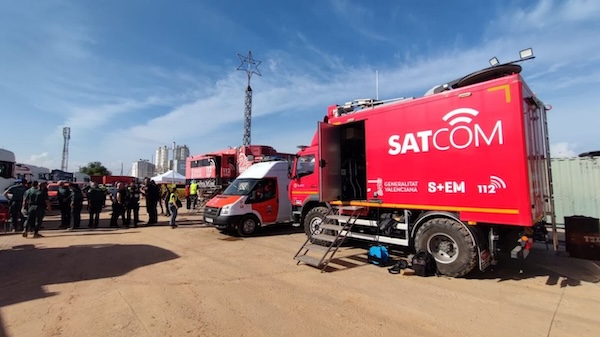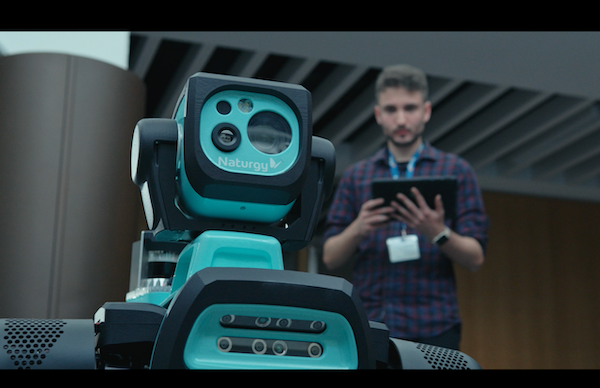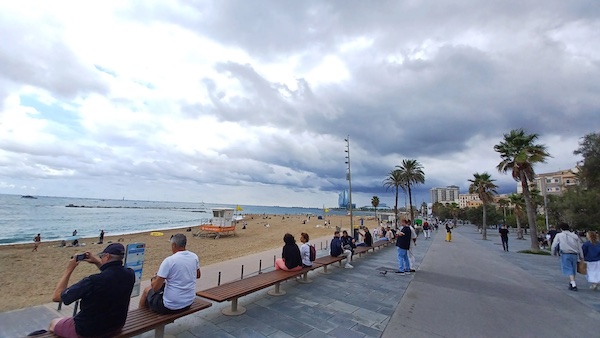We present the winning theses of the 2nd edition of the Esade Alumni Best Thesis Awards for MSc programmes
Celebrating the talent of recent graduates and promoting the network and knowledge of the Esade Alumni community is the objective of the awards for the best master’s thesis organised each year by Esade Alumni. The shortlisted theses were chosen for their innovativeness and for the relevance of the topic to the professional world. The final selection was made by the boards of the Esade Alumni interest clubs through the Young Commission.
The Best Theses Awards foster this integrative and collaborative culture, while also giving visibility to the talent in Esade’s classrooms and inspiring other students to give the best of themselves and help to build a better world.
This year’s winners were Amelie Sophie Binder-Peyre (MSc ‘21), with the thesis Fostering Community Development in DRC’s Rural West; Nadine Nerz (MSc ‘21,) with the thesis Measuring and Communicating the Social Impact of MICROWD; and Felix Riebel (MSc ‘21), with the thesis Circular Economy in the Fashion Industry.
The winning theses
Nadine Nerz (MSc '21) with the thesis “Measuring and Communicating the Social Impact of MICROWD”
- How did you come up with this idea for your master’s thesis and why were you interested in the topic of MICROWD’s social impact?
 By choosing to participate in the University Development Service (SUD) programme instead of writing a normal master’s thesis, I was able to help a social enterprise address a problem it is currently facing.
By choosing to participate in the University Development Service (SUD) programme instead of writing a normal master’s thesis, I was able to help a social enterprise address a problem it is currently facing.
During my bachelor in international business, we had the option of specialising in emerging markets, which is what I decided to do. After the second year, we had to focus on a particular region and I chose Latin America. At that time, I was not able to speak even a single word of Spanish and I had never travelled to the region. Since then, I visited Latin America for the first time in 2019, and my deep admiration for the region, its peoples and its cultures has only intensified.
MICROWD is a social fintech company that provides microcredits. It is headquartered in Madrid, Spain. It targets female entrepreneurs in Latin America, mainly in Mexico, Nicaragua and Peru. The company was thus a perfect fit for me, as it enabled me to combine my bachelor specialisation with my master studies in finance. MICROWD is very aware of the need to provide transparency concerning both its financial returns and the social impact it is creating. That’s why they were looking to improve their framework to measure their social impact.
- Would you mind sharing some of your conclusions with the alumni?
It is generally important to take different perspectives into account, especially when it comes to something as sensitive as social impact. MICROWD enabled me to discover these different perspectives by working first in Madrid with the administrative staff and then in Campeche, Mexico, with the on-site staff. After talking to staff from Peru and Nicaragua, I also realised that it is important to differentiate between countries. When I interviewed women from rural and urban areas in Mexico, I could see that there are significant differences with regard to how the impact of microcredits was perceived. I learned that prematurely throwing all beneficiaries into one big pot when assessing social impact is very misleading.
Another important lesson was that impact is never static. You have to constantly ask yourself whether the framework has to be adjusted, for example because of macroeconomic factors or additional countries or regions that were added to the portfolio.
Impact also consists of various dimensions, namely outputs, outcomes and impact. Outputs are things that are easily measurable, such as the number of microcredits given to women. Outcomes are more intangible. Impact refers to the long-term effects of outcomes. The more intangible effects are often neglected because they are harder to measure. MICROWD’s vision is to create a world where the poor have the same opportunities as everyone else and it is definitely making progress towards this goal. However, talking to the “extraordinary women” – which is what the company calls its beneficiaries – there was something that seemed to be even more important, though less tangible. It was the energy and optimism they were radiating. The credit gave them an opportunity and thus more independence and ultimately more bargaining power in their families.
“The credit gave them an opportunity and thus more independence and ultimately more bargaining power in their families”
-What did you learn from of this project?
This experience taught me the importance of listening, because that was basically what I was doing most of the time. This was also what enabled me to understand what the women thought, what problems they faced and what kinds of long-term objectives they had.
It was truly inspiring to hear how proud the women were of what they achieved. They were full of power and eager to change the quality of their lives and support the people around them to do the same.
-What would you recommend to students who are now finishing their studies?
Finishing your studies is very exciting, but also a bit scary, because you are finally becoming “an adult” and society expects certain things of you. However, you should not do what society expects of you but rather what you expect of yourself. Define your priorities, your principles and your objectives.
I also think it is very important to explore different working environments – that is, different countries and types of companies. You should be open to all kinds of experiences in order to be able to think about whether where you are is where you want to be.
My main advice would be to remain true to yourself at every step. You should look forward to the next chapter of your life: Enjoy the journey of getting to know to yourself even better and always stay optimistic and have a smile on your face!
Felix Riebel (MSc '21) with the thesis “Circular Economy in the Fashion Industry”
-How did you come up with this idea for your master’s thesis and why were you interested in the topic of circular economy in the fashion industry?

Firstly, the fast-paced fashion industry has fascinated me for a long time like no other. After I got to know some of its mechanisms from a sales perspective during an undergraduate internship, I realised that there was a lot of untapped potential for disruptive business models and new ways of doing business.
Secondly, it has always bothered me that sustainability and economic success on a large scale are often presented and perceived as mutually exclusive. I believe that combining these two factors will be the biggest advantage companies can have in the decades to come.
Thus, when I saw the topic listed as available, I took the chance to investigate a seminal topic in a thrilling industry for my master’s thesis and decided to focus on barriers for key decision-makers to exploit the aforementioned potential.
-Would you mind sharing some of your conclusions with the alumni?
The textile industry is a huge economic factor on a global scale. Poor and developing countries rely on it especially heavily. At the same time, its negative impact on our planet is indisputable, yet often neglected. For example, cotton production alone accounts for around 2.5% of global water usage and the textile industry emitted more CO2 than global aviation in the last decade. After oil and gas, it is the world’s most harmful industry, and that is just considering the environmental effects.
Yet, it would be short-sighted to just damn the industry for its impact. Countries like Bangladesh are simply lacking alternatives to secure their GDP. My research identified nine barriers clustered into “intra-company structure”, “technical shortcomings” and “industry infrastructure and organisation” that occur along the lifecycle of fashion products. Overcoming these barriers is, in my eyes, the biggest challenge that today’s and tomorrow’s leaders in the industry are facing. While explicit measures to overcome these barriers would have been way beyond the scope of my thesis, four building blocks of action as guidelines for decision-makers have been formulated and can be used as a checklist for management decisions.
“It has always bothered me that sustainability and economic success on a large scale are often presented and perceived as mutually exclusive”
- What methodology did you follow in this project?
I combined case studies with a literature review of more than 100 articles. For my first case example, Patagonia, I was able to draw on existing studies, as the company is known as a pioneer in disruptive and sustainable business in the fashion industry. For Marco Polo, my second case example, I gained insights by conducting interviews and reviewing shareholder reports, newspaper articles and industry magazines.
- What did you learn from this project?
I gained many interesting insights about an industry I am passionate about. I understand the urgent need for innovation and re-thinking more deeply now. Nonetheless, the most valuable takeaway is to have experienced first-hand how crucially important it can be to constantly challenge the status quo, regardless of the industry or the field of expertise. Furthermore, it once again became clear to me that industry and academia have to cooperate more closely for actionable insights and recommendations.
- What can young people contribute to the alumni association?
I think that the younger generations always come with a new perspective on the economy, society and global problems that affect us all. My generation in particular is now starting its professional life in an unprecedented time of political unrest, pandemics, globalisation (and its limits) and digitalisation. Since most of us young professionals experience this “new normal” as the only normal, we should be heard and taken seriously. The innovation and re-thinking I plead for in my thesis does not begin or end with the textile industry – indeed, it is the very essence of our global society and interaction.

 By choosing to participate in the University Development Service (SUD) programme instead of writing a normal master’s thesis, I was able to help a social enterprise address a problem it is currently facing.
By choosing to participate in the University Development Service (SUD) programme instead of writing a normal master’s thesis, I was able to help a social enterprise address a problem it is currently facing.
































